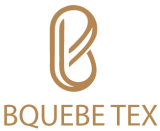Enhancing communication skills between buyers and sourcing houses is crucial for success. Effective collaboration hinges on clear and robust dialogue.
In today’s competitive global marketplace, the ability to communicate effectively can make or break the relationship between buyers and sourcing houses. Both parties must prioritize building their communication skills to ensure they understand each other’s needs, preferences, and constraints. This does not only facilitate smoother transactions but also fosters trust and long-term partnerships.
Strategic communication leads to better negotiation outcomes, improved problem-solving capabilities, and more accurate fulfillment of requirements. With benefits ranging from efficient workflow to enhanced satisfaction, the focus on skillful communication is a linchpin for thriving in the business of buying and sourcing. Therefore, companies must invest in training and tools that bolster communication for optimal operational synergy.
The Business Imperative Of Better Communication
Clear communication between buyers and sourcing houses is crucial. Miscommunication can lead to financial losses that no business wants. Mistakes in translating needs or wants can create huge problems. Not understanding each other can mean missing big business chances. Simple slips in sharing information can result in buying the wrong items. This mistake can cost lots of money. Sharing clear, detailed messages is key to success. Knowing this, both parties should work on improving their talk.

Credit: jigglar.com
Breaking Down Communication Barrier
Effective communication is crucial between buyers and sourcing houses. Language barriers can create misunderstandings. They can also slow down business progress. It’s essential to find common linguistic ground or employ translators. Advanced tech often helps to bridge gaps in communication. Yet, not everyone finds tech easy to use. Some may struggle with new software. This can lead to frustration. Training and user-friendly solutions are vital.
| Language | Actions to Overcome Barriers |
| Non-Common Languages | Use of translators, Learning basic terms |
| Technical Jargon | Simplifying terms, Using clear definitions |
| Technology | Actions to Improve Usage |
| Software Issues | Training sessions, User guides |
| Compatibility Problems | Standardizing tools, Tech support |
Language Proficiency In Global Trade
Effective communication skills are vital for success in global trade. A clear understanding of English as a trade language is essential as it is universally accepted for business. Mastering English helps in bridging communication gaps and ensuring smooth transactions. Entrepreneurs should consider investing in multilingual teams. Teams fluent in multiple languages can engage with diverse clients and suppliers more effectively. This strategy expands market reach and can lead to long-term business relationships.

Credit: www.kickresume.com
Embracing Technological Solutions
Improving communication between buyers and sourcing houses is essential. Software tools play a pivotal role in achieving better clarity. User-friendly interfaces and real-time data exchange greatly enhance interactions. Artificial Intelligence (AI) greatly aids in simplifying complex discussions. AI chatbots can provide quick responses, ensuring no query goes unanswered. These advanced systems learn from each interaction, continuously improving their ability to facilitate conversations.
Cultural Sensitivity And Trade
Effective communication is crucial for successful international trade. Cultural sensitivity plays a significant role in business. It helps in understanding different views and customs. Training programs aimed at increasing intercultural competence are essential. They equip teams with the skills to navigate complex global markets. Knowledge of cultural nuances can prevent misunderstandings. It fosters respect and builds stronger partnerships between buyers and sourcing houses.
- Identify common cultural differences that may impact business interactions.
- Learn about non-verbal communication cues specific to different cultures.
- Develop an appreciation for diverse business etiquettes and negotiation styles.
Negotiation Skills For Success
Negotiations bridge the gap between buyers and sourcing houses. Cultural understanding plays a crucial role. A good relationship is the foundation of successful talks. Respect and trust must prevail to ensure open communication. Each culture has its own tactics. Adapting to these signifies respect for the counterpart. For instance, some cultures value direct communication, whereas others prefer subtlety. Awareness and adaptability to these nuances contribute to fruitful negotiations.
| Culture | Preferred Negotiation Style |
|---|---|
| Eastern | Indirect and holistic |
| Western | Direct and specific |
| Latin American | Personal and relational |
| Middle Eastern | Respectful and leisurely |
One must be aware of non-verbal cues too. Eye contact, gestures, and space can convey different meanings. Patience and observance help in understanding these subtle signals. This knowledge ensures a smoother negotiation process.
Enhancing Understanding Through Feedback
Effective communication is key between buyers and sourcing houses. Establishing constructive feedback loops is crucial for this partnership. These loops allow for continuous improvement and better understanding of each party’s needs. To succeed, both parties should embrace feedback as an opportunity for growth. Sharing clear, specific, and actionable input ensures that both buyers and sourcing houses can make necessary adjustments. This proactive approach can prevent misunderstands and foster a stronger, more efficient relationship. Regularly scheduled meetings for feedback exchange can solidify trust. Each participant learns from previous experiences. This shared learning leads to better process refinement over time. Transparency and openness in communication are the pillars of this strategy.
Legal Framework And Communication
Contracts are vital tools for effective communication between buyers and sourcing houses. They outline the duties and rights of each party. Clear contracts help avoid misunderstandings and conflicts. Written agreements provide a reference for resolving issues. Dealing with international partners brings challenges. Each country has different legal rules. Knowing these differences is key. It ensures legal compliance and smooth business operations. Enterprises must adapt their contracts to account for these variations. Skilled communication is crucial. It bridges the legal gaps and fosters mutual understanding.
Building Long-term Relationships
Building strong relationships between buyers and sourcing houses is essential. Trust is fundamental to these partnerships. Both sides must believe in each other’s commitment. Effective communication is a key part of building trust. This means sharing information openly and often. Teams should talk about successes and challenges together. This helps both grow stronger as a united front. Regular updates keep everyone on the same page. It’s like making sure everyone is rowing in the same direction in a boat. Without this, the boat might spin in circles!

Credit: phrase.com
Training Teams For Better Interaction
Effective communication is the key to success in the business world. Enhancing skills between buyers and sourcing houses can boost efficiency and profitability. It’s crucial to invest in training teams for optimal interaction. Communication workshops serve as a robust platform to reinforce interaction proficiency. Teams learn through interactive sessions and real-world scenarios. These workshops are designed to sharpen listening, speaking, and understanding abilities. They are tailored to bridge gaps between various departments.
- Interactive exercises enhance team collaboration.
- Feedback sessions lead to continuous improvement.
- Active participation in workshops ensures a hands-on experience.
Through role-playing, individuals practice effective negotiation techniques. Simulating real-life negotiations helps in understanding complex transactions. Participants gain confidence and sharpen their problem-solving skills. As a result, the overall team performance and interaction quality remarkably improve.
Evaluating Communication Effectiveness
Effective communication between buyers and sourcing houses is vital. Metrics and KPIs play a key role in this process. They help measure the success of interaction. Regular review cycles are essential. They ensure that all parties are on the same page. Clear goals should be set for each cycle.
| Metrics/KPI | Description | Goal |
|---|---|---|
| Response Time | Speed of reply from either party | Minimize delays |
| Quality of Feedback | Helpfulness of communication | Improve problem-solving |
| Resolution Rate | Issues solved effectively | Enhance satisfaction |
Each of these points ensures clarity and efficiency in discussions.
Frequently Asked Questions For We Have To Increase Our Communication Skills Buyer And Sourcing House Together
What Are Communication Skills In Sourcing?
Communication skills in sourcing refer to the ability to negotiate, converse, and liaise effectively between a sourcing house and buyers to ensure clear mutual understanding.
How Can Buyers Improve Dialogue With Sourcing Agents?
Buyers can improve dialogue by actively listening, being clear and concise, using collaborative language, and providing detailed feedback to sourcing agents.
Why Is Communication Key In Buyer-sourcing Relationships?
Effective communication fosters trust, reduces misunderstandings, and creates a more efficient and productive relationship between buyers and sourcing professionals.
What Strategies Enhance Sourcing House Communication?
Strategies such as regular meetings, clear contracts, constructive feedback, and technology utilization bolster communication with sourcing houses.
Can Better Communication Reduce Sourcing Errors?
Yes, better communication can significantly reduce sourcing errors by aligning expectations and clarifying requirements between buyers and sourcing teams.
What Role Does Culture Play In Sourcing Communication?
Cultural understanding can impact communication by influencing negotiation styles, relationship building, and interpretation of business practices in sourcing.
How To Handle Miscommunication In Sourcing Partnerships?
Address miscommunication promptly by acknowledging the issue, discussing misalignments openly, and collaboratively finding solutions to prevent future occurrences.
Conclusion
Strengthening dialogue between buyers and sourcing houses unlocks vast potential. It’s about understanding, adapting, and evolving together. Let’s bridge communication gaps for mutual growth and success. Our journey to enhanced cooperation starts now—let’s embrace it for a thriving business future.

